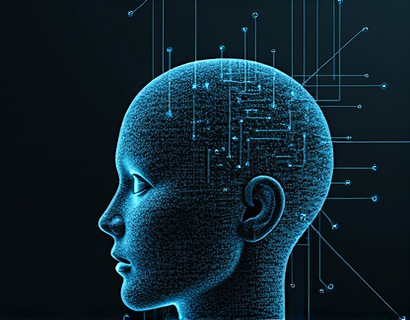AI-Powered Chat: A Safe and Educational Resource for Exploring Phygital Industry Knowledge
The phygital industry, a blend of physical and digital experiences, is rapidly evolving, creating new opportunities for educators and young learners. As technology continues to advance, the need for reliable and safe resources to explore this dynamic field becomes increasingly important. An AI-powered chat platform serves as an innovative solution, providing specialized insights and verified content tailored for educators and students. This article delves into the significance of AI chat interfaces in the phygital industry, emphasizing their role in fostering a secure and educational environment for young users.
Understanding the Phygital Industry
The term "phygital" refers to the integration of physical and digital experiences, creating a seamless interaction between the two realms. This concept is becoming increasingly relevant in various sectors, including retail, education, and entertainment. For instance, in retail, customers may interact with products in-store while simultaneously accessing digital information through their smartphones. In education, phygital solutions can enhance learning experiences by combining traditional teaching methods with digital tools.
As the phygital landscape continues to evolve, it is essential for educators and young learners to stay informed about the latest trends, technologies, and best practices. This is where AI-powered chat platforms come into play, offering a user-friendly interface for exploring phygital knowledge.
The Role of AI in Education
Artificial intelligence has transformed various aspects of education, providing personalized learning experiences and facilitating access to information. AI-powered chat interfaces can engage students in meaningful conversations, answering their questions and guiding them through complex topics. This interactive approach not only enhances understanding but also encourages curiosity and exploration.
Moreover, AI can analyze user interactions to tailor responses based on individual learning styles and preferences. This adaptability makes AI chat platforms particularly effective for young learners, who may have diverse needs and varying levels of comprehension.
Benefits of AI-Powered Chat for Educators and Young Learners
1. Safe and Secure Environment
One of the primary concerns when introducing technology to children is safety. AI-powered chat platforms can be designed with robust safety features, ensuring that content is age-appropriate and verified for accuracy. By implementing strict content moderation and filtering mechanisms, these platforms can create a secure environment for young users to explore phygital knowledge without exposure to harmful or misleading information.
2. Access to Specialized Insights
Educators and students can benefit from the specialized insights provided by AI chat interfaces. These platforms can offer information on various aspects of the phygital industry, including emerging technologies, innovative practices, and case studies. By accessing verified content, users can gain a deeper understanding of the subject matter, empowering them to make informed decisions and engage in meaningful discussions.
3. Interactive Learning Experience
AI chat platforms facilitate an interactive learning experience, allowing users to ask questions and receive immediate responses. This real-time interaction fosters engagement and encourages students to take an active role in their learning journey. Additionally, the conversational nature of AI chat interfaces can make complex topics more accessible, breaking down barriers to understanding.
4. Encouraging Curiosity and Exploration
Young learners are naturally curious, and AI-powered chat platforms can harness this curiosity by providing a space for exploration. Students can ask questions about the phygital industry, seek clarification on concepts, and discover new areas of interest. This exploratory approach not only enhances knowledge but also cultivates a lifelong love of learning.
5. Supporting Educators
Educators play a crucial role in guiding students through their learning experiences. AI chat platforms can serve as valuable resources for teachers, providing them with up-to-date information and insights into the phygital industry. By leveraging these tools, educators can enhance their lesson plans, incorporate relevant examples, and facilitate discussions that resonate with students.
Content Verification and Accuracy
In an age where misinformation can spread rapidly, ensuring the accuracy of content is paramount, especially when it comes to educational resources for young learners. AI-powered chat platforms can implement rigorous content verification processes, utilizing trusted sources and expert insights to provide reliable information. This commitment to accuracy not only builds trust with users but also reinforces the educational value of the platform.
By prioritizing content verification, AI chat interfaces can help educators and students navigate the complexities of the phygital industry with confidence. Users can engage with the material knowing that the information they receive is credible and relevant.
Designing Child-Friendly AI Chat Interfaces
Creating a child-friendly AI chat interface involves several key considerations to ensure a positive user experience. Here are some essential design elements:
- Age-Appropriate Language: The language used in the chat interface should be simple and easy to understand, catering to the cognitive levels of young learners.
- Engaging Visuals: Incorporating engaging visuals, such as images and animations, can enhance the user experience and make learning more enjoyable.
- Interactive Features: Interactive elements, such as quizzes and games, can encourage active participation and reinforce learning concepts.
- Feedback Mechanisms: Providing users with feedback on their interactions can help them understand their progress and areas for improvement.
- Parental Controls: Implementing parental controls allows caregivers to monitor and manage their children's interactions with the platform, ensuring a safe learning environment.
Case Studies: Successful Implementation of AI Chat in Education
Several educational institutions and organizations have successfully implemented AI chat platforms to enhance learning experiences. Here are a few notable examples:
1. Virtual Tutoring
Some schools have integrated AI chat interfaces as virtual tutors, providing students with personalized support in subjects like math and science. These platforms can assess students' understanding and offer tailored explanations, helping them grasp challenging concepts.
2. Language Learning
AI chatbots have been utilized in language learning programs, allowing students to practice conversational skills in a safe environment. By engaging in dialogue with the chatbot, learners can improve their language proficiency while receiving instant feedback on their responses.
3. Career Exploration
Educational organizations have developed AI chat platforms to guide students in exploring potential career paths within the phygital industry. By providing insights into various roles and required skills, these platforms empower students to make informed decisions about their futures.
Future Trends in AI-Powered Education
The future of AI-powered education is promising, with several trends expected to shape the landscape:
1. Enhanced Personalization
As AI technology continues to advance, chat platforms will become increasingly adept at personalizing learning experiences. By analyzing user data, these platforms can offer tailored content and recommendations, ensuring that each learner receives the support they need.
2. Integration with Augmented Reality (AR)
The integration of AI chat interfaces with augmented reality has the potential to revolutionize learning experiences. Imagine students interacting with virtual objects while receiving real-time information from an AI chatbot, creating immersive and engaging educational opportunities.
3. Collaborative Learning Environments
AI chat platforms may evolve to facilitate collaborative learning experiences, allowing students to work together on projects and share insights. This collaborative approach can foster teamwork and communication skills, essential for success in the phygital industry.
Conclusion
AI-powered chat platforms represent a transformative resource for educators and young learners exploring the phygital industry. By providing a safe and educational environment, these platforms empower users to engage with specialized insights and verified content. As technology continues to evolve, the potential for AI chat interfaces in education is vast, promising enhanced personalization, interactive learning experiences, and a deeper understanding of the phygital landscape. Embracing these innovations will not only enrich the educational journey for young learners but also prepare them for the future of work in an increasingly phygital world.










































